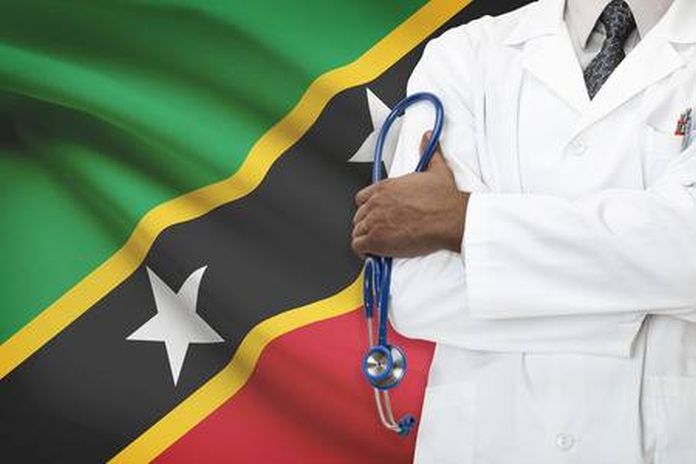It is an age-old belief that nobody can tell your story the way you can. Part 1 gave me the opportunity. In Part 2, allow me to shed more light on the situation at hand from the standpoint of a medical doctor.
By Guest Contributor
My colleague doctors who are Cuban trained have constantly been marginalized, underrated, and made to feel inadequate, yet in the face of a global crisis we look to the very Cuban trained specialist doctors and healthcare workers as the primary supplier of to fill the gaps of our so-called “saturated healthcare sector”. How then, does a young doctor with a passion for medicine from the age of seven, and after returning home with so much eagerness and zeal to serve their country, not feel demotivated by a system that is hell-bent on demoralizing and demeaning its workers?
A system that rewards mediocrity, celebrates tyranny, and one in which there is no consequence for poor work ethics and no little reward for sacrifice.
Let us for a moment consider the fact that the hospital is governed, not by a statutory board of well-meaning individuals, instead, power is wielded by a tripartite namely the medical chief of staff, the matron, and the operations manager. None of whom seem to have any training in the area of human resource management and operate as what best meets the description of modern-day “house slaves”, strategically placed gatekeepers of information and opportunity.
They hold together the pillars of a monopolistic system that has stifled the progress of many while turning a blind eye, if not unwittingly facilitating the enrichment of a few. They and their cohorts have been the beneficiaries of a system devoid of any real structure, operating at the expense of poor taxpayers of St Kitts and Nevis who has no choice but to make do with what passes for healthcare at Joseph N France General Hospital, (JNF).
In every country, there is a standardized rank and file of doctors; ranging from interns to junior doctors (termed house officers), senior house officers, specialists, and consultants. In those settings, a well functioning on-call system operates, such that the patient is managed at all levels, thus promoting the growth of those that work therein, while serving the needs of patients. In this operational structure, a patient is seen by an A and E physician, who refers the patient to a doctor from an admitting service, who assesses the patient in that very department before transferring to the wards. This vastly reduces the likelihood of misdiagnoses and encourages a unified multi-specialty approach to healthcare.
How then, in light of our irrefutable inadequacies can one make the argument that there are sufficient doctors and that we the doctors are merely being granted a favor? Well, we believe that unless and until there is a doctor available 24/7 at Pogson and Mary Charles hospital to serve the needs of our communities, we are far from saturated.
A system saturated with capable doctors does not allow mortality from treatable conditions because there was no doctor to be found. Nor does a system saturated with doctors leave nurses alone from 04:00 pm on the wards to provide levels of care to patients that they are neither trained or qualified to give.
A system saturated with capable doctors does not leave admitted patients unseen by a doctor for an entire weekend, even longer during national holidays. A system saturated with doctors cannot explain why the emergency room continues to exist without a specialist in emergency medicine, including the waiting times’ patients are subjected to. It is only until these needs are addressed can a government that cares about the health of its people make the argument that the system is saturated with doctors.
This is not an attack on private practice, but a patient’s life should never be caught in the crossfire between a decision to stay in your practice to make up for the substandard salaries you agreed to and returning to reexamine and treat a patient admitted under your care. Yes, the system is bursting at its seams, but not with a glut of doctors; it is bursting at its seams with ineptitude and poor leadership.
Nurses are so often forced to braze the inclement weather to make it to work afoot, overworked to the point that an elderly seemingly dies – choking on food from lack of supervision or left to writhe in pain from bedsores that won’t heal because of inadequate staff to turn them. When at nights or on holidays an X-Ray technician has to be called in from home for an emergency case and a perennial staff shortage at the lab that causes results for tests that take at most 45 minutes to return six-eight hours later to an emergency room. It is saddening that people tasked with leading some of the brightest minds in St Kitts and Nevis lack foresight, emotional intelligence, and empathy.
Healthcare has to be made a priority in St Kitts and Nevis with an economy dependent on tourists, and Citizenship by Investment (CBI) program. Instead, the authorities choose to label every fresh coat of paint as “state of the art”. Whereas a medical tourism initiative could substantially offset the costs of providing quality care to citizens.
Related: Part 1
To be continued … Part 3








This matter ain’t no joke, I have experienced it all. This article not lying. Imagine nurses at Mary Charles and Pogson hospital playing doctors because none there or they can’t get them on the phone because that’s what goes on. When people sick they want to see a doctor not this telephone doctoring that’s going. Please do something to stop this, we putting the community and the nurses at risk. Find some way to pay the doctors properly.